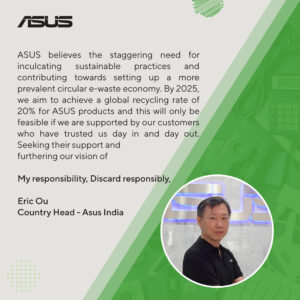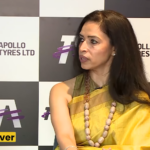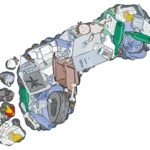Tackling E-Waste: Promoting The Idea Of Refurbished Electronics Early Will Aid In Building A Circular Economy

During/post-pandemic, the larger population realised the potential of laptops and handheld devices. With the growing dependency on the device owing to an increase in work, study, and entertainment from home, the industry saw an uptick in sales. On breaking down the purchase pattern to understand consumer behaviour we realized that even though people are opting for brand new laptops, a significant share of the sales and consumptions were also recorded from the purchase of refurbished products.
The auto industry in India in the late 2010s saw a remarkable shift in Indian consumer behaviour pertaining to purchasing cars. A market that shied away from the idea of opting for second-hand cars gradually started warming up to the concept. The shift was gradual and can be attributed to the increase in awareness, addressing pain points of potential customers as well as bringing a systematic institution in place that offered multi-touchpoint checklists and guarantees. The Indian used-car market is now valued at $23 billion in FY2021-22 and is projected to grow at double the rate at a CAGR of 19.5% till FY 2026-27.
Interestingly, the trajectory of the Indian refurbished laptop industry is similar to the one noticed during the growth of the second-hand automobile industry in the country. This makes it imperative for the refurbished laptop and electronics industry to draw similarities and institute similar practices that led to the segment’s unconditional success.
Institutionalizing The Segment- Bringing in Credible Partners
The idea of opting for refurbished laptops is nascent in the country. While it is readily and easily available in the market, the reason that is directing customers in the opposite direction is the lack of certifications and guarantees that ensure that the product has met the expected quality checks. Like the initial phase witnessed during the second-hand automobile industry, multiple unofficial local partners are offering refurbished products, the ecosystem needs to work in tandem to bring in a system that assures the customers that laptops and PCs are in optimum state.
Establishing a multi-checkpoint list and communicating about the series of tests that the product has undergone will also add to the machine’s credibility, something similar to what ASUS Select Stores, one of India’s first refurbished laptop retail stores, are committing. The products displayed at the Select Store undergo a robust inspection and are offered to customers with a one-year company warranty.
Companies should also work with the government to add an extra layer of authenticity by proposing a stamp or certifying stores that offer second-hand electronic products to ensure customers.
Increasing Awareness
Putting up a mechanism in place to validate the product quality remains a priority and the next steps are marked as increasing awareness and debunking myths relat ed to the products. Owing to preconceived notions it is often believed that second-hand products will only deliver substandard performance.
ed to the products. Owing to preconceived notions it is often believed that second-hand products will only deliver substandard performance.
Driving awareness about the robust quality checks that ensure that the laptops are in ideal condition and deliver performance similar to that of newly purchased laptops and at a lower price is bound to attract more customers.
Another benefit of building a circular economy and promoting the refurbished laptops ecosystem is that it will support combating the growing and looming e-waste crisis in the country. India is the third largest producer of e-waste after China and The United States of America. Building an ecosystem that extends legible second-hand PCs and refurbished laptops will not just offer customers a power-packed machine at considerable prices but will also help in reducing the strain on the environment and taking the first and necessary step towards inculcating a circular economy of e-waste in the country.










































































































































































































































































































































































































































































































































































































































































































































































































































































































































































































































































































































































